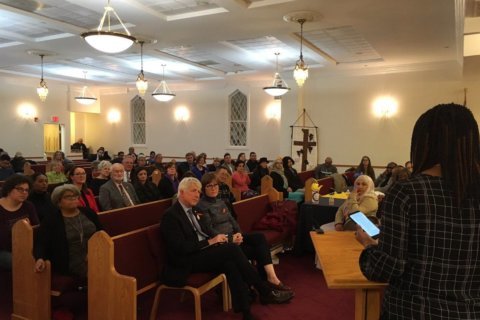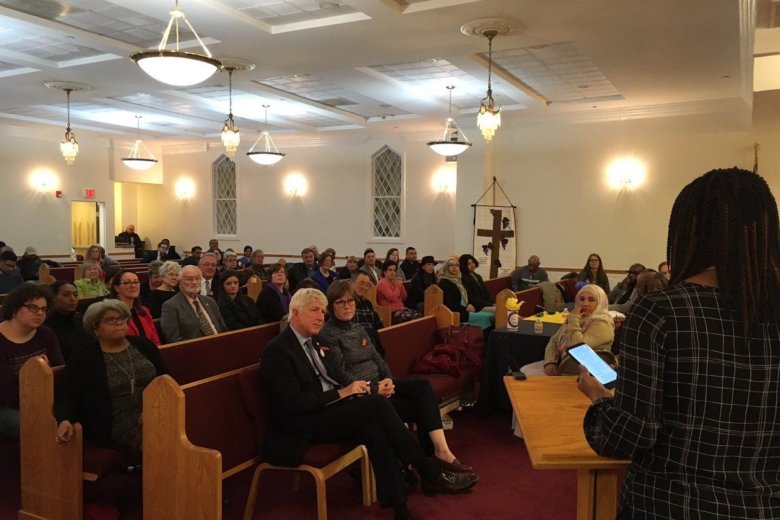
This year commemorates 400 years since the first enslaved Africans were brought to Virginia’s shores, and the Commonwealth is now grappling with the recent wounds of race-related incidents.
An interfaith group gathered in Historic Leesburg Sunday evening to figure out how Virginians can move forward — together and for the benefit of all. Virginia Attorney General Mark Herring sat on the front pew of the Mt. Zion United Methodist Church to listen.
Even though both Herring admitted wearing blackface in the 1980s and Gov. Ralph Northam was caught up in a controversy over a photo of one person in blackface and other in a Ku Klux Klan robe, Loudoun County NAACP President Pastor Michelle Thomas told reporters after the event that there can be positives that develop from the turmoil.
“And now the conversation has moved from blackface, which was just the catalyst, but to something more substantial, which is systemic racism — eliminating or dismantling systemic racism. And now we get to talk about all systems and all structures, versus just, you know, blackface. So it’s a good thing.”
Herring said he has been apologizing in person to folks across Virginia and also doing “a lot of listening.”
After a rough month in Va-after admissions of wearing blackface in his past, Va. Attny. Gen. Mark Herring joined the Loudoun County #NAACP to listen during a work session in Leesburg — 2 the problem and possible solutions from the community regarding systemic racism in Va @WTOP pic.twitter.com/jILshxClXI
— Liz Anderson (@PlanetNoun) March 4, 2019
“A lot of people really would like to see something positive come from this focus on race that we have right now in Virginia,” said Herring.
“Those conversations are going to continue — they’re going to continue in lots of different ways, lots of different forums. And this is one forum that I’m able to hear directly from people who are talking about issues in their own community right here in Leesburg and in Loudoun County.”
As he listened, Herring told reporters about two of the things he took away from Sunday’s working session.
“Well, I heard about the concern about the rise in hate crimes. … I also heard about the importance of education and teaching our history completely, honestly and fully and talking — make sure that our young people are talking about these issues. But not just young people and not just teachers, but parents and everyone else.”
Herring said he’ll listen to see what role he might be able to play to address systemic racism.
“We see it in a lot of different ways — in our criminal justice system in Virginia,” Herring said, remarking that African Americans make up “about 19 percent” of the state population, “but our prison population is over 50 percent African-American.
“The poverty rate among white Virginians is only about 8.8 percent compared to 18.3 for African-American Virginians. So there is a lot of work that we need to do and some of it can happen at the state level. A lot of it may also have to happen at the local level, and we had a very good dialogue about some of those issues that impact the local community here,” Herring said.
— Liz Anderson (@PlanetNoun) March 4, 2019
Herring also said he’s still listening to Virginians about how they’ve been affected by the revelation that he wore blackface as a 19-year-old college student in 1980, and “listening to them to see if they would like me to continue … if I still have their trust.”






